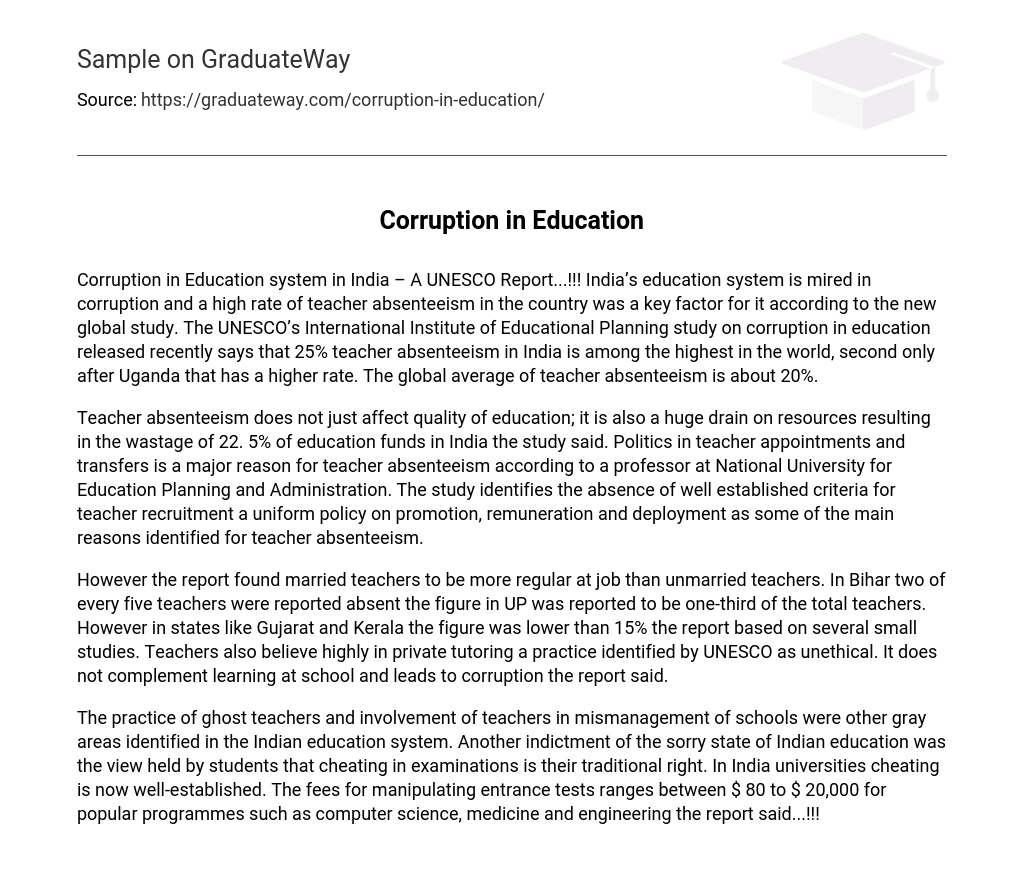India’s education system suffers from corruption, with high teacher absenteeism being a major contributing factor. A recent global study by UNESCO’s International Institute of Educational Planning indicates that India has one of the highest rates of teacher absenteeism in the world, standing at 25%. This rate is surpassed only by Uganda. In contrast, the average global rate for teacher absenteeism is approximately 20%.
A study reveals that teacher absenteeism in India has negative consequences on both the quality of education and the utilization of education funds, wasting 22.5% of them. A professor at the National University for Education Planning and Administration attributes this issue to political influences affecting teacher appointments and transfers. The study emphasizes the absence of well-defined recruitment criteria, consistent policies regarding promotions, remuneration, and deployment as major factors causing teacher absenteeism.
The report revealed that married teachers had higher job attendance compared to unmarried teachers. In Bihar, 40% of teachers were absent, while in UP it was one-third of all teachers. However, smaller studies indicated that absentee rates in Gujarat and Kerala were below 15%. The report also emphasized the strong belief among teachers in private tutoring, which UNESCO deems unethical. The practice hinders learning in schools and fosters corruption.
The Indian education system has identified several gray areas, including the practice of ghost teachers and the involvement of teachers in school mismanagement. Additionally, the sorry state of Indian education is further highlighted by the fact that students view cheating in exams as their traditional right. Cheating has become well-established in Indian universities, with fees ranging from $80 to $20,000 for manipulating entrance tests in popular programs like computer science, medicine, and engineering.





